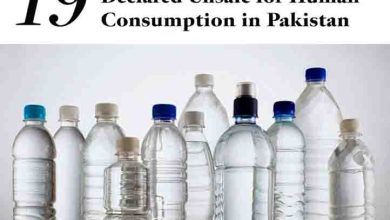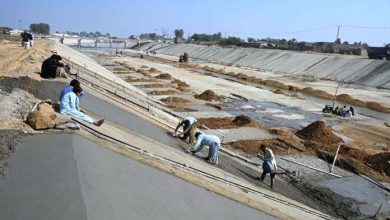Decision making on scientific data for improved water resource management is critical
Source: Daily Nation, Date: November 03, 2022
Water experts at the 2nd Pakistan Water Week 2022 stressed the need to promote sustainable and improved water and food security in Pakistan. Around 25 international water and climate experts attended the international conference of the 2nd Pakistan Water Week 2022 in person. In addition, 50 international experts from academia, government departments, research, and development organizations attended the event virtually.
The international conference was themed ‘The Role of Water-Energy-Food-Ecosystem (WEFE) Nexus for a Climate Resilient Pakistan” and was organized jointly by the International Water Management Institute (IWMI) Pakistan, CGIAR Initiative on NEXUS Gains, Pakistan Council of Research in Water Resources (PCRWR) under the umbrella of the Federal Ministry for Planning Development & Special Initiatives and the Federal Ministry of Water Resources.
Dr. Muhammad Ashraf, Chairman, the Pakistan Council of Research on Water Resources (PCRWR) in his welcome remarks said, “Water resources management in Pakistan is becoming complex day by day. Water security is emerging as the most important non-security threat. The national water security means national food security, and national food security means national security itself.” He further said that to address the issue of water, we need a multidimensional approach.”
Dr. Claudia Ringler, Deputy Program Leader, CGIAR NEXUS Gains Initiative, International Food Policy Research Institute (IFPRI) said that Pakistan Water Week 2022 focuses on co-developing and scaling NEXUS innovations using foresight methodologies and trade-off analyses. It is important to energize food and water systems sustainably and inclusively, as rural areas are in dire need of clean energy solutions. We need to develop the capacity for Water-Energy-Food-Ecosystem (WEFE) actors including emerging women leaders as education is central to agricultural and economic growth. Our goal is to strive for parity.”
Ahsan Iqbal, Federal Minister for Planning Development and Special Initiatives was the chief guest on the occasion and said, “Water is a scarce commodity because, we continue to deal it as a commodity, and must be valued. We have two major challenges related to water security – the demographic challenge of a fast-growing population and fast-paced urbanization.” He further informed us that we need to use water in a responsible manner so we can cater to the needs of different sectors, i.e., water for agriculture, for industry, for drinking. It requires a holistic approach. In Pakistan, we have a limited capacity for water reservoirs. The new reservoirs will only make up for the lost capacity of old reservoirs due to salinity accumulation.
In his concluding remarks, Dr. Mohsin Hafeez, Country Representative – Pakistan and Regional Representative – Central Asia, IWMI, highlighted that the impact of this year’s heatwave and flooding events due to climate change have only exacerbated the problems facing Pakistan and its use of water. The conference has helped to address the systemic cross-sectoral thinking across water, energy, food and environmental systems for climate-resilient development in Pakistan. There are clear opportunities to reduce the adverse impacts of climate change on poor rural communities. This conference has shaped the focus and agenda of water planning and management moving forward for Pakistan.







